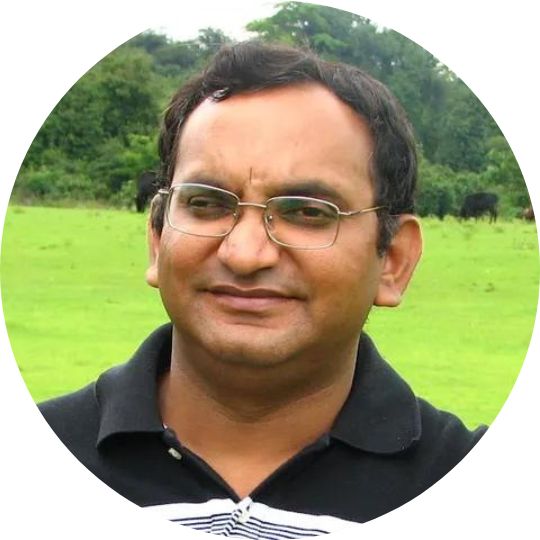
1,728 views
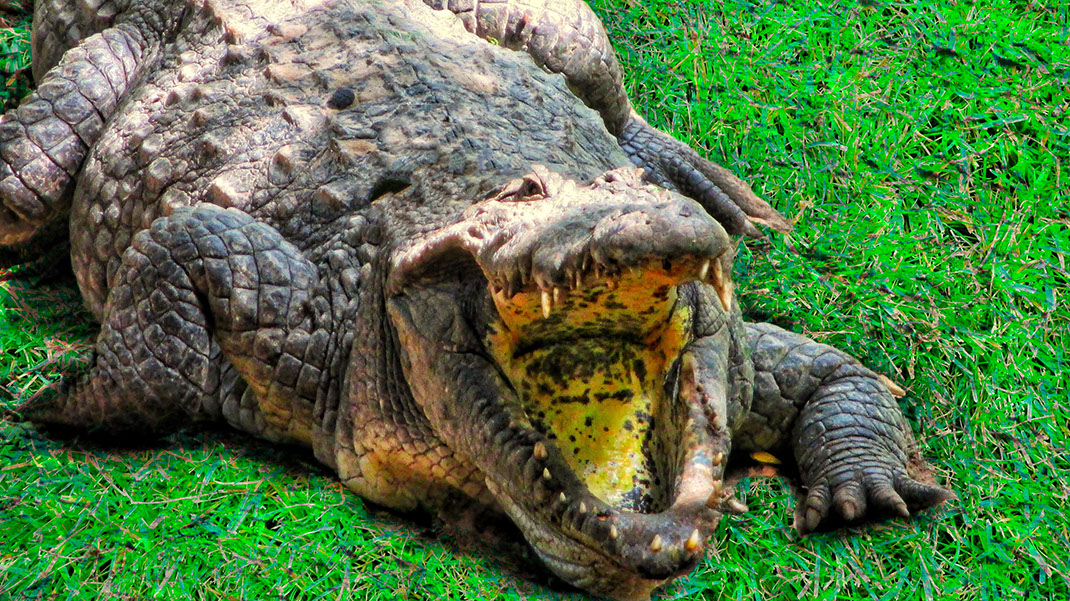
The Smiling Coast of Africa
By Devang Thakkar
Last Updated: 20 Jan 2021
I had a bad habit of checking my mails on my phone lying in the bed, still half asleep. One such morning, I sleepily scanned through my emails, contemplating on extending my sleep. Suddenly, I saw a business inquiry and I jumped out of my bed, it had come from a country “The Gambia”. Having never heard of this country before, I thought that “G” has erroneously replaced “Z” and it should be Zambia. On reading further, it was confirmed as Gambia and not Zambia. As usual, I asked Mr. Google to enlighten me. I discovered a tiny nation, probably the smallest country in mainland Africa and almost entirely surrounded by Senegal with an exception of a narrow Atlantic coastline.
The business inquiry matured and I was soon on my way to Gambia. My first visit was for a little more than 2 weeks followed by a brief stay in the country. A once British colony with an English speaking population of a mere 2 million, boasts of tourism and safety. Having traveled extensively to West Africa, this was quite unheard of until I spent a considerable amount of time in the country. Gambians are basically fun loving people and like to serve tourists as it creates substantial employment opportunities for them. Gambia is a tourists paradise with clean and pristine beaches, wildlife, nature, adventure and nightlife. Banjul is the capital city and the only airport in the country. You can either fly in to Banjul or take the land/river route from Dakar in Senegal. Banjul has ample accommodation and dining options across luxury, mid-range or budget categories. Gambia is also one of the cleanest countries in West Africa. As part of Operation Clean the Nation, the last Saturday or each month is observed as a cleaning day. There is no official public transport system but the taxis are aplenty, inexpensive and ply everywhere. Taxi sharing is a good option for short distances and costs as little as 10 Dalasis (less than a quarter dollar) per person. Some travelers rent bikes from the hotel and roam around on their own. Even though it was a British colony, you still drive on the right side of the road. The infrastructure in Banjul and around is relatively good with the downtown being overly crowded with heavy traffic. Foreign exchange is a bit tricky in Gambia, as is across Africa, though it is not complex process. Airport and hotels are the costliest places to change currency but public outlets give you a better rate and it is quite safe. You can strike a better deal by exchanging privately with a trusted local dealer. Always remember, the larger the bill, the better the exchange rate! There are tons of banks and ATMs in and around Banjul. Invest in a local SIM card, its not expensive and the data service is good, way better than the hotel Wi-Fi. If you are staying in a rented apartment then ensure you have sufficient "cash power" to avoid being stranded the whole night without air conditioning. Its a Murphys Law, you run out of electricity in middle of the night. Last but not the least, you may like to carry prerequisite medicines with you as visiting a doctor or hospital in Africa is the last thing you want to do.
Among the host of activities to do in Gambia, there are some that are unique. My business partner Rahuldev Rajguru and I were used to visit different places over the weekend during our stay in the country. I have encapsulated our experiences in Gambia, although there is much more to explore here. I hope to go back again someday.
Bijilo Forest Park
Also, popularly known as the Monkey Park it is walking distance from Senegambia strip or Kololi Beach Club. It is spread across half sq. km touching the ocean beach. It is a protected nature reserve with dense forest canopy and vegetation. The nature trail, developed by Gambian-German forestry Project is spread across 4.5 kilometers within the park and marked with signboards that winds down to the habitat or forest. It is home to reptiles, mammals and birds with a humongous population of thousands of monkeys including the endangered species of Green Vervet and Red Colobus. There are signboards requesting visitors not to feed monkeys, as it will make them boisterous. However, humans always act contrary to instructions and sadly have turned the forest preserve into a "Monkey Feeding" park. Monkeys are now bold enough to come in troops and sit on your shoulders to demand food. They even venture outside the park to go scavenging in the nearby residential areas and are sometimes hazardous to passing vehicles.
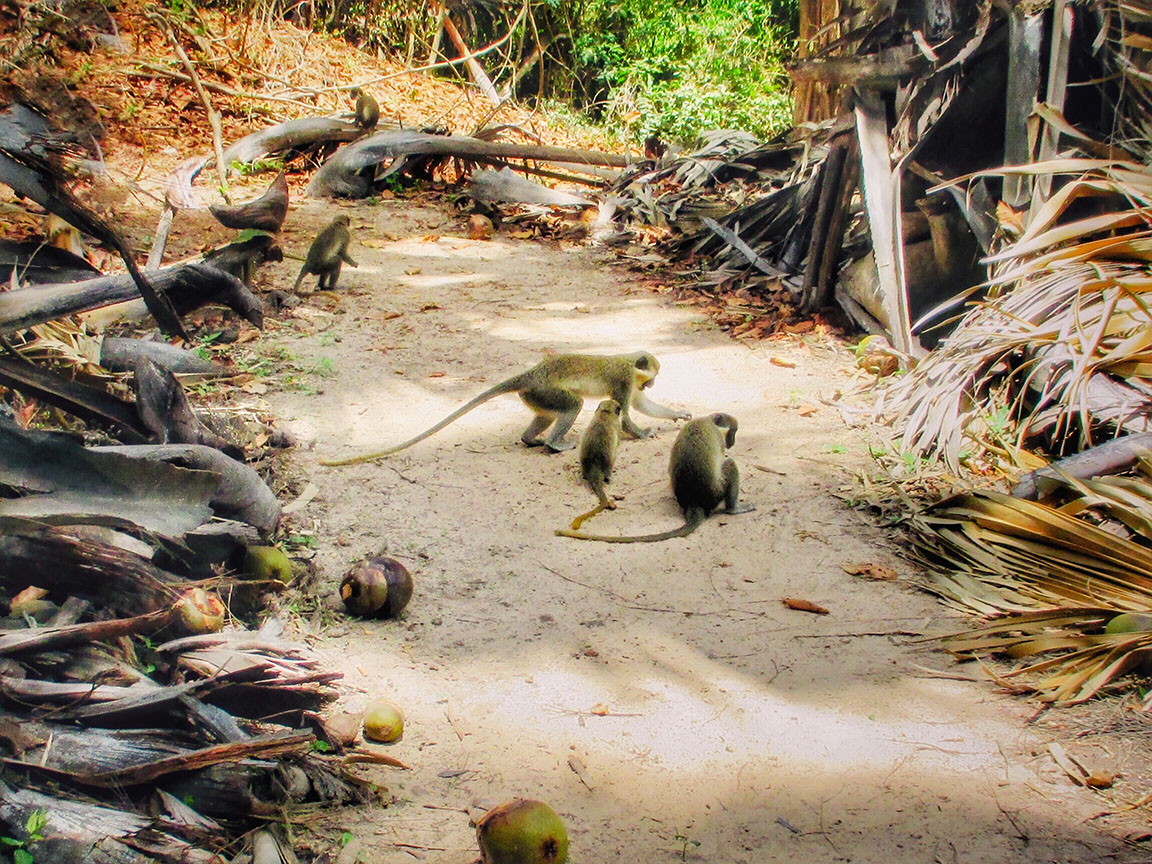
Bijilo Forest Park is a home to thousands of monkeys in their natural habitat including some of the endangered species.
Kachikally Crocodile Pool
How many of you are comfortable taking a stroll in the park with Crocodiles as companions (2-3 feet away)? That too not pet Crocs but wild ones in their natural habitat. I was not when I visited Kachikally Pool. On entering through the main gate, I started walking towards the pool and to my dismay, I noticed two giant Crocs on either side of me and one of them matching my pace just 2 feet away on my right. I was scared but my guide told me not to worry.
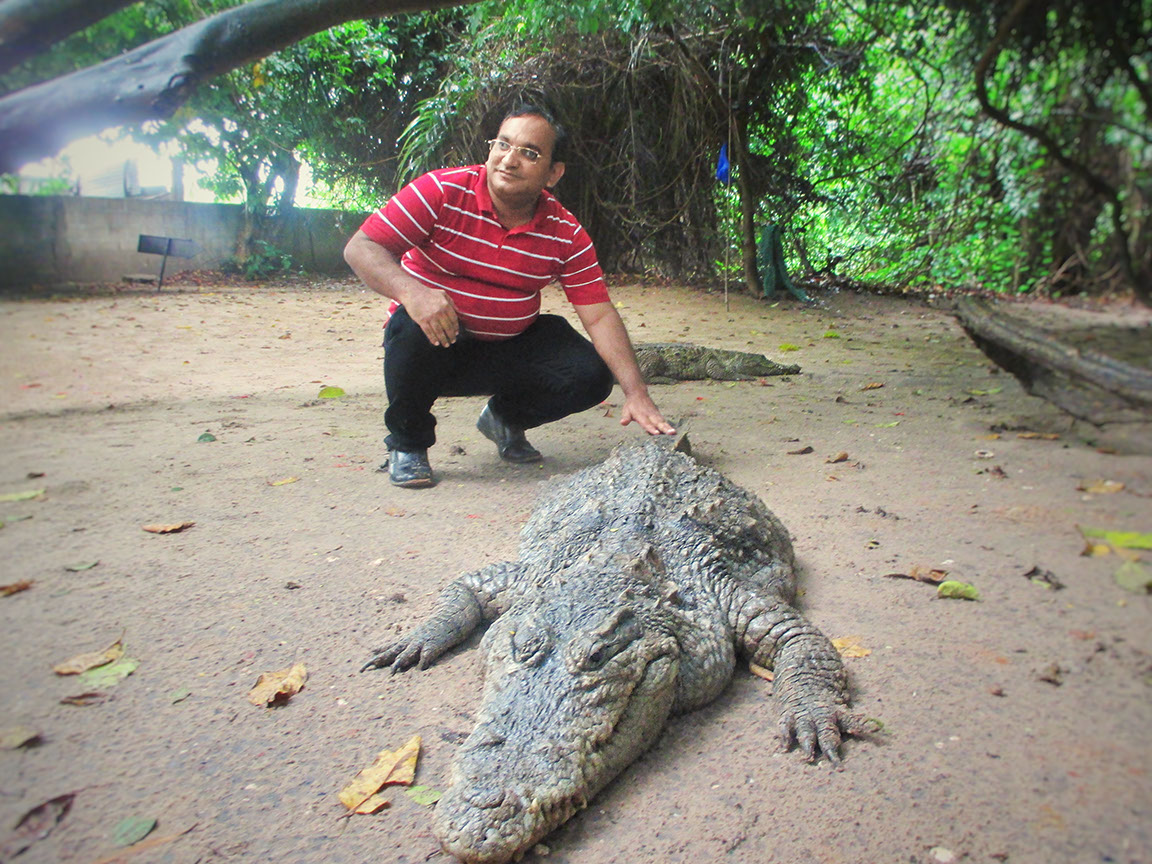
Yes it is real, but I wont do this again, will you?
Kachikally is a sacred pool spread across 9 acres in the old town of Bakau, about 12 kms. from Banjul. It is known for its healing powers for various ailments, especially infertility. These women must be washed in the pool by the women of Bojang clan that guard the village for over 500 years. The pool is mostly filled with water lettuce so the water is not clearly visible. It is home to about 100 Crocs and they are fed 100 kilograms of fish daily. There are many docile Crocs lazing on the bank of the pool. For the brave hearted, there is an opportunity to touch them, but of course in the presence of the rangers. However, you need to be wary of females who have laid eggs, which the rangers will ensure. There is a small souvenir shop where you can purchase Croc teeth, which the locals consider to be lucky. I bought one for my daughter, which she is thrilled with and treasures.
Having wild crocodiles around you at Kachikally pondis a thrilling experience.
A visit to the ethnology museum is recommended. It is behind the ticket office and has a collection of about 1,000 historic artifacts kept inside the African huts. It has an interesting display of the history of Bakau as well as the culture and lifestyle of various ethnic groups of Gambia.
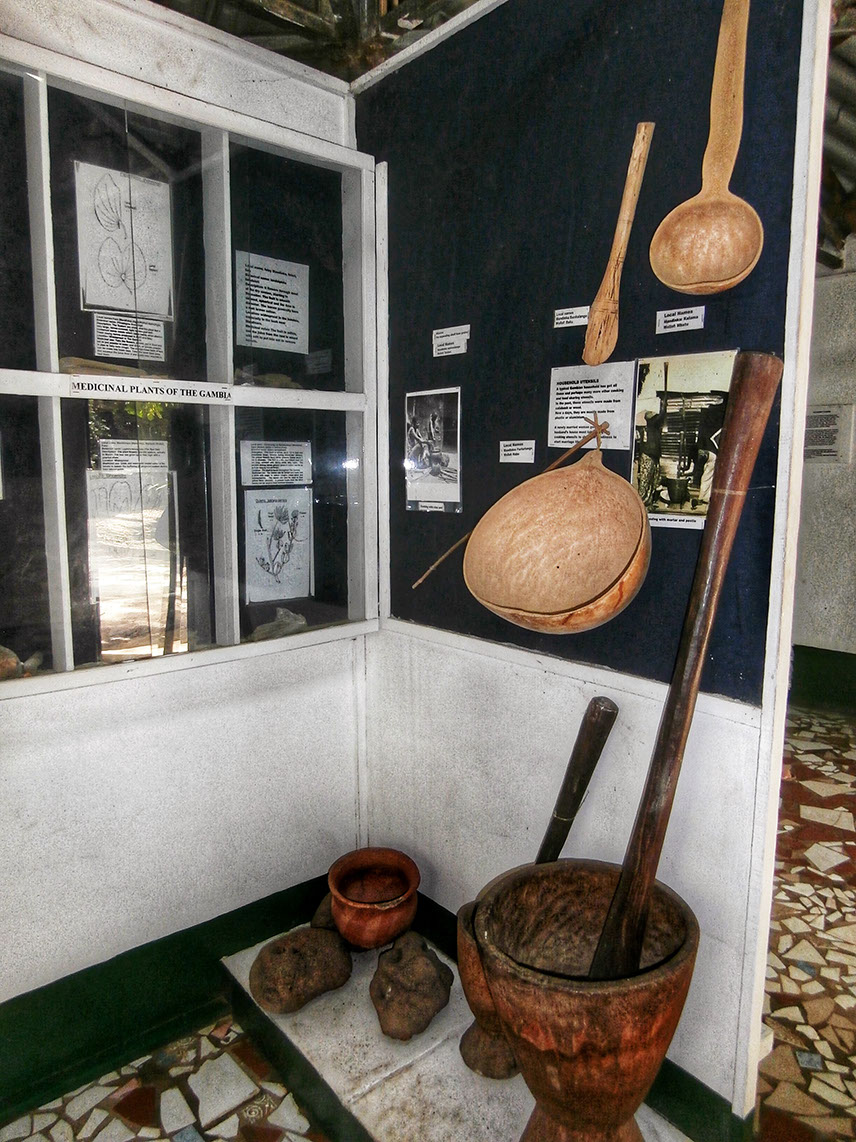
The Ethnology Museum at Crocodile Park is a community run ethnographic museum with a collection of about 1,000 historic artifacts.
Lamin Village
This is the largest village in Western Gambia. On recommendation from a local guide turned friend, we went on a boat ride into the interiors of the Mangroves. We were the only tourists at that time so we had a very relaxed ride. What made this ride the most memorable was sailing through Mangroves and narrow canals with high tide and to top it off it was raining! I have done many boat rides in the Mangroves before, but this was the first time for me with high tide and rain. We got to see numerous birds and reptiles and the most stunning of all was seeing the Kingfisher go for a kill. We also saw a Monitor Lizard lying on a branch of Mangroves from just 2 feet.
Boat ride in the Mangroves Forest while it is raining gives you goosebumps and reminds you of James Bond movies scenes.
Abuko Nature Reserve
The country's first designated wildlife reserve spread around 2 sq. kms with 2,000 odd Gmelina trees is a home of about 300 bird species and diverse wildlife. It is a must visit place if you are in Gambia. We walked through the muddy trails in the rain experiencing different colors of the forest. The visit was started along the nature trail where you can witness Guinea Savanna, a band of interlaced forest and grassland, an ecoregion of West Africa.
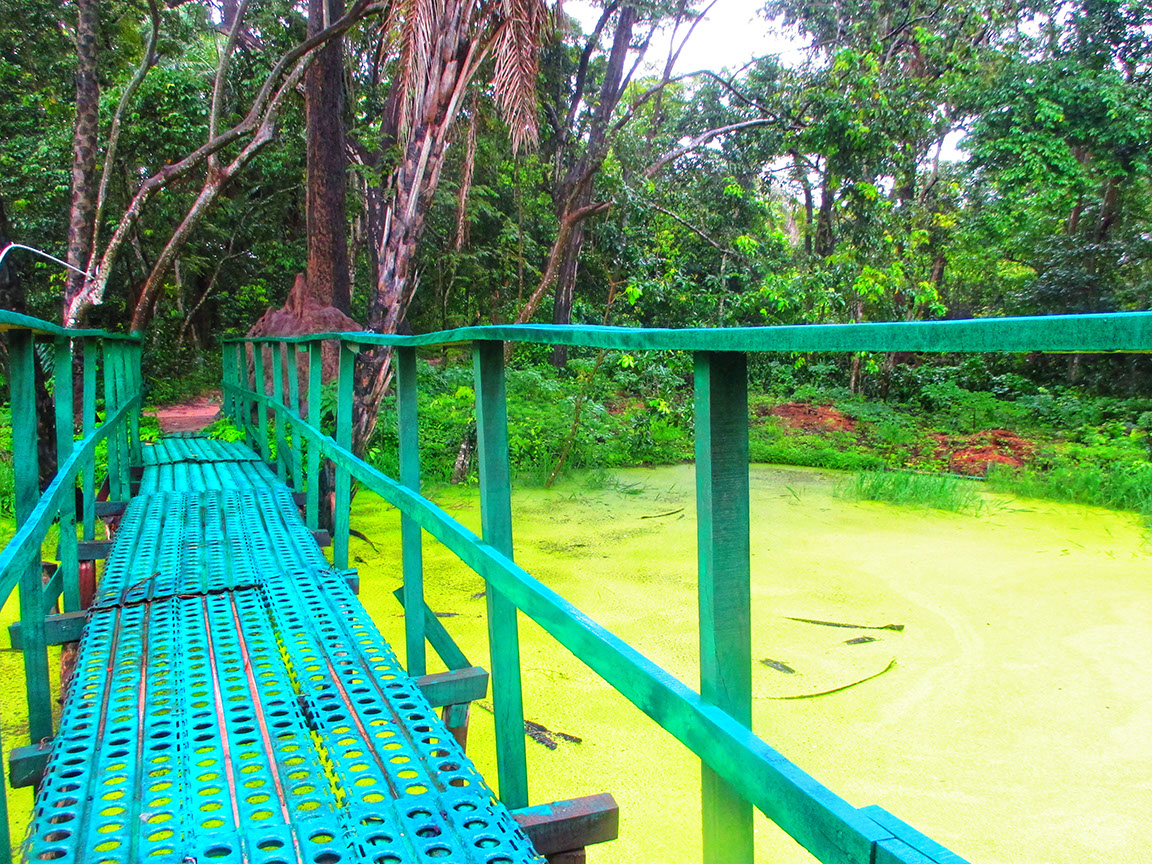
Footbridge on a swamp covered in water lilies and surrounded by large Palm trees.
The trail leads you to bird hide and visitor's center where we spotted few species of Kingfishers, Vultures, Drongo, Hornbill, and Flycatcher etc. They also have Darwin Field Station for Biodiversity or "Observation Platform" which is in shambles now. But you can climb up and watch Nile Crocodiles in the water. There are several enclosures that serve as an orphanage for animals where big size species of Vultures (Griffon and Hooded) are hosted. There are Baboons and Hyenas as well. There used to be Lions as well, but one of them once escaped from the enclave creating havoc and killing many animals, eventually being shot by the rangers.
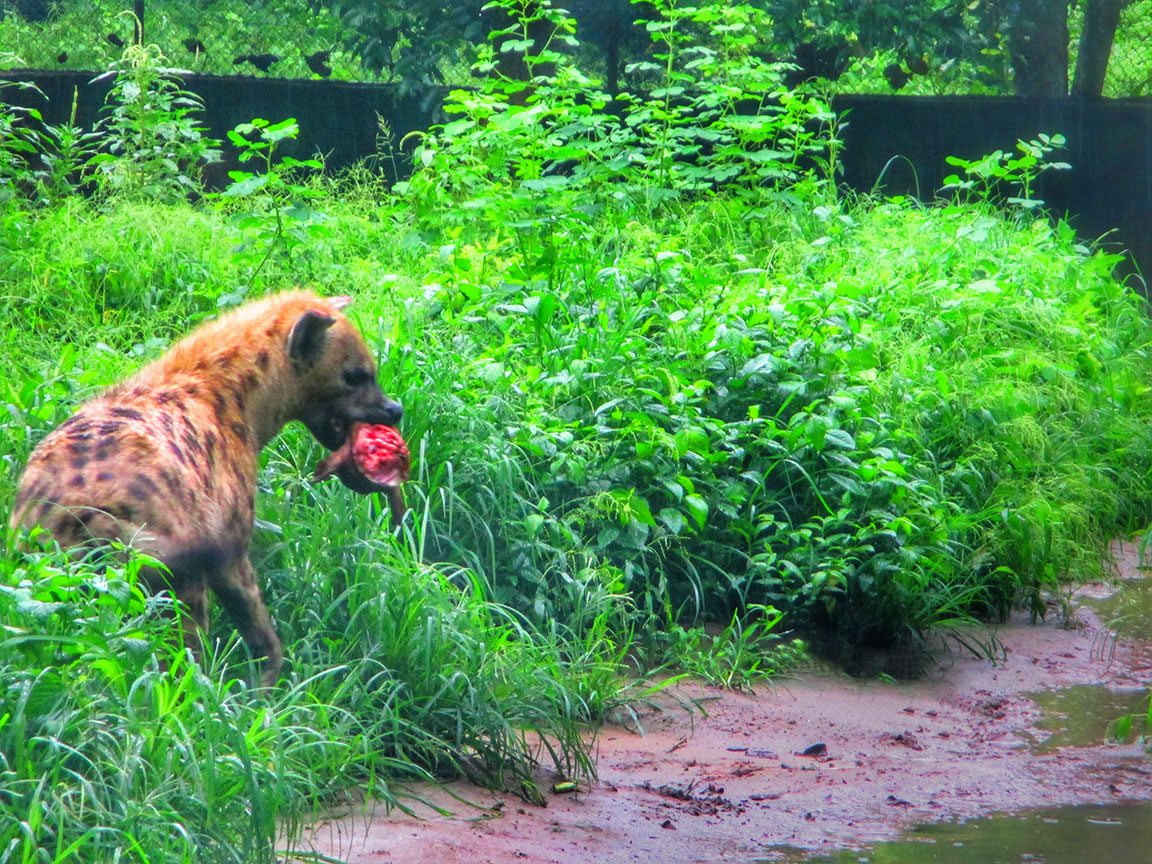
Hyena with a piece of leftover meat in the Animal Orphanage.
Beach & Nightlife
I stayed at a beach hotel in Serrekunda during my first visit to Gambia. I was pleasantly surprised at the cleanliness on the beach and how well maintained it was. A morning walk on the beach was my routine, which I really missed when we moved to an apartment for a longer stay. The people were pleasant and very hospitable to tourists. The beach was full of local people over the weekend enjoying time with their families. It is lively with kids, music and food shacks.
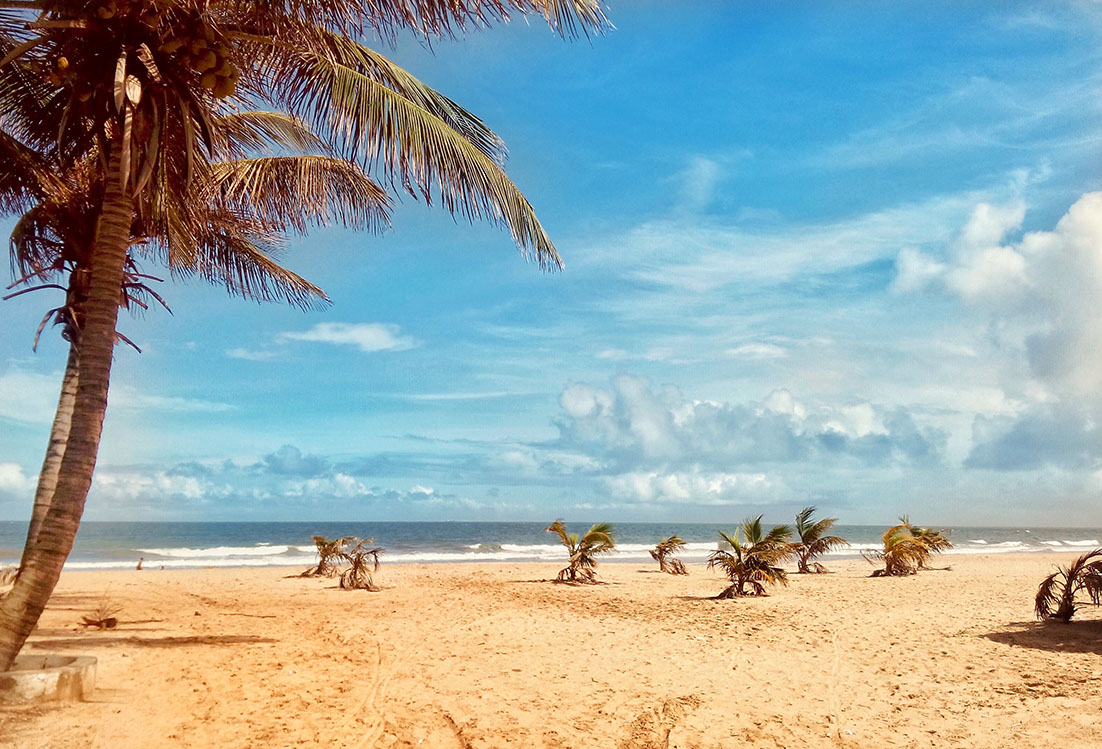
Gambia is famous for its beaches, heres a nice and clean Kotu beach in Serrekunda.
I was thrilled to know that we would be living in an apartment in Kololi during our longer stay. It is a happening place to be in if you plan to live in the country. Senegambia Strip is on every tourist's map; it is full of restaurants offering varied cuisines, bars, music, live performance and every kind of entertainment in one place. When dusk sets in, the strips go live with neon lights and signboards from restaurants, bars, casinos, etc. Casinos, in Gambia? Yes! Banjul has many standalone casinos as well as casinos in hotels. Guess now you have a picture of nightlife in Banjul.
Disclaimer: This blog may contain affiliate links. At no extra cost to you, we may get a small commission if you buy anything. All products and services we endorse have been personally used or come highly recommended to us. These incomes allow us to keep the community supported and ad-free.
Things To Consider
About the author
Rate the Story
Related Stories
Please share your comment
This is EPIC! I have seen a few documentaries on this, where they show the connection between Ayurveda from India to Gambia. I am glad that still so many natural places are kept secure in Africa.









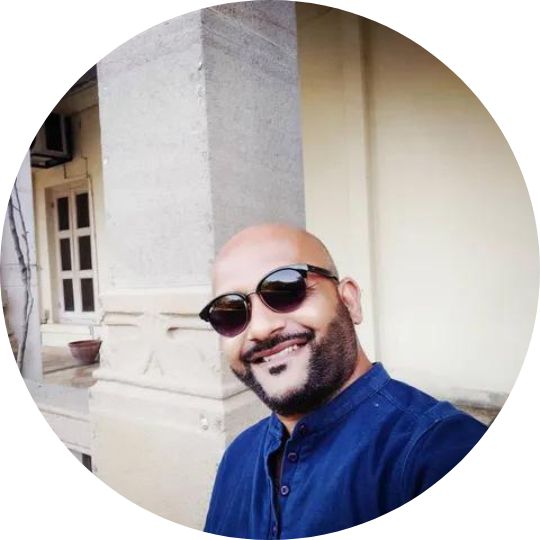

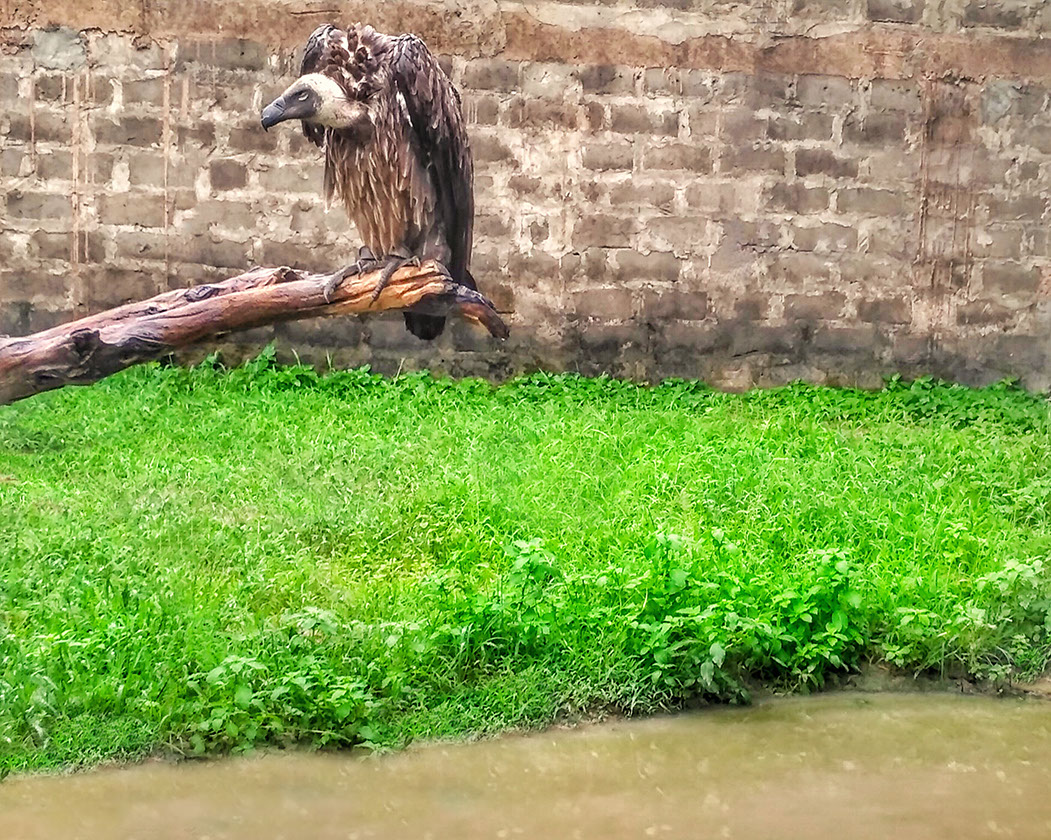
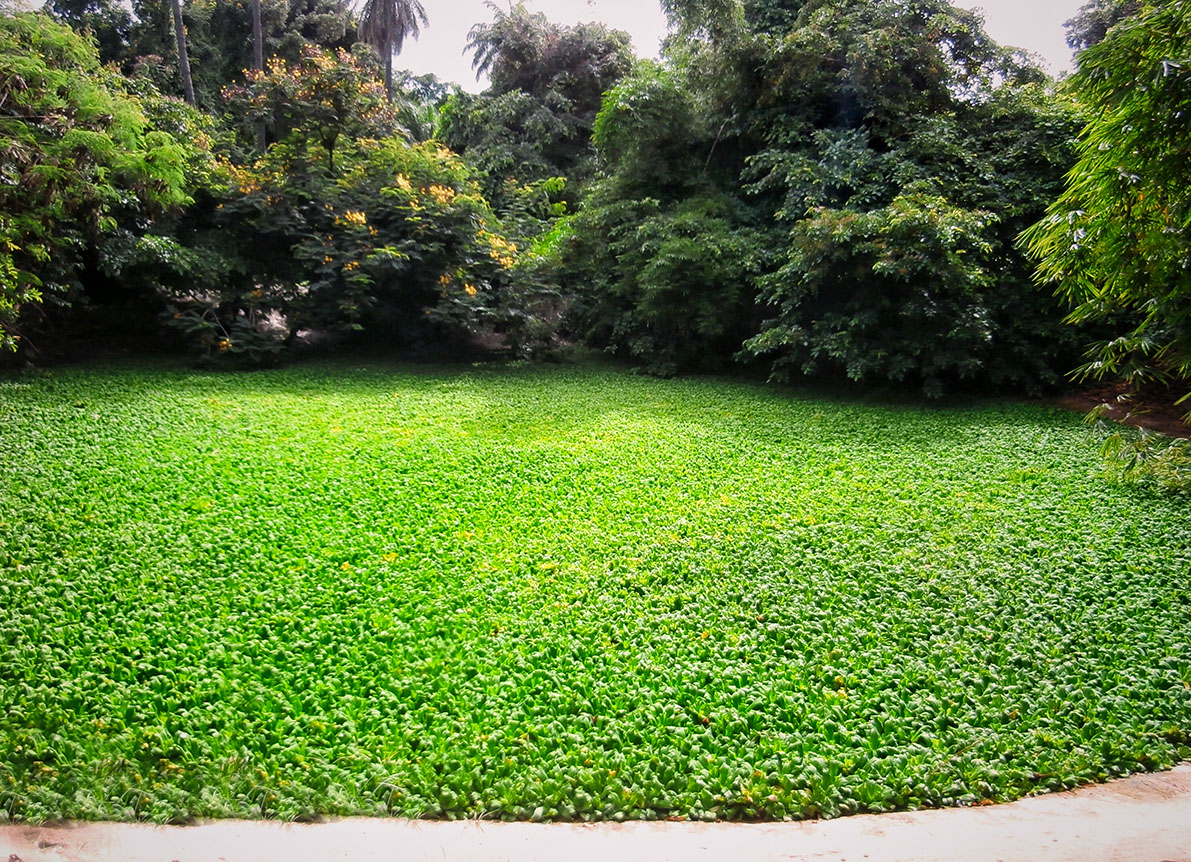
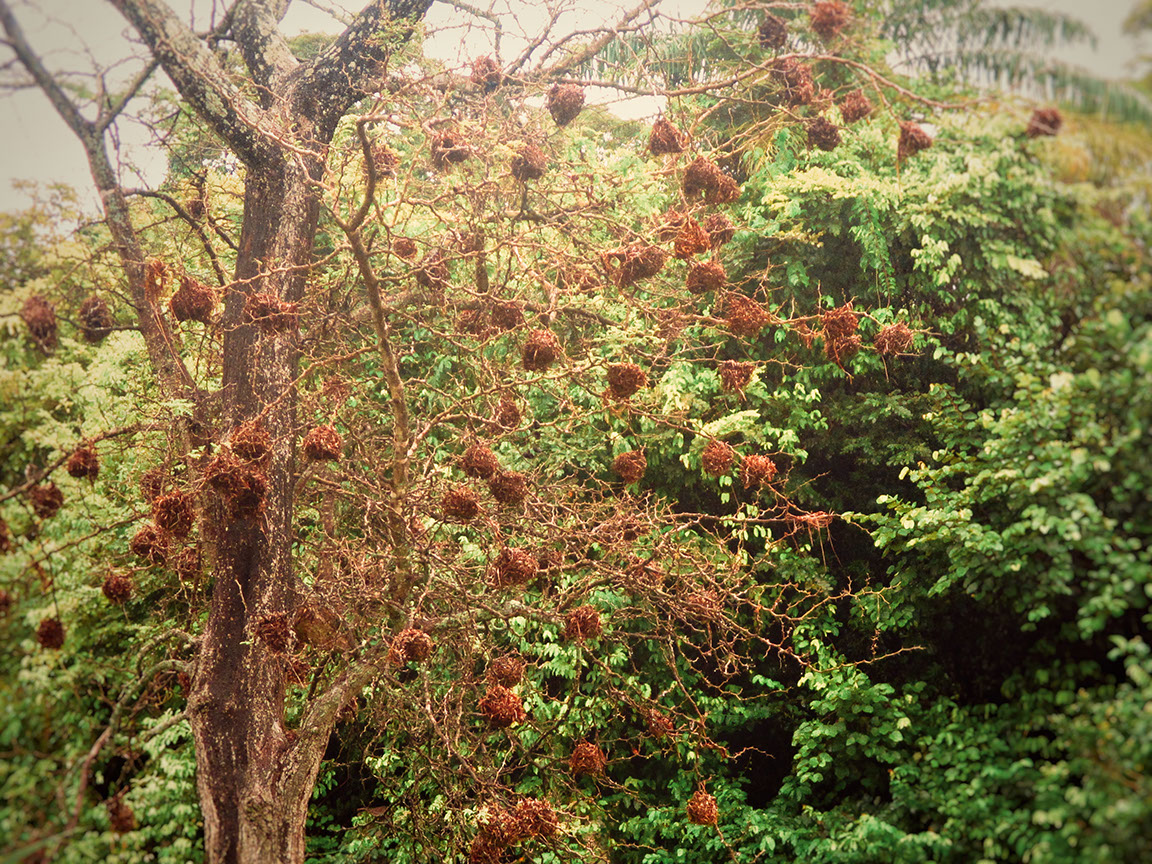
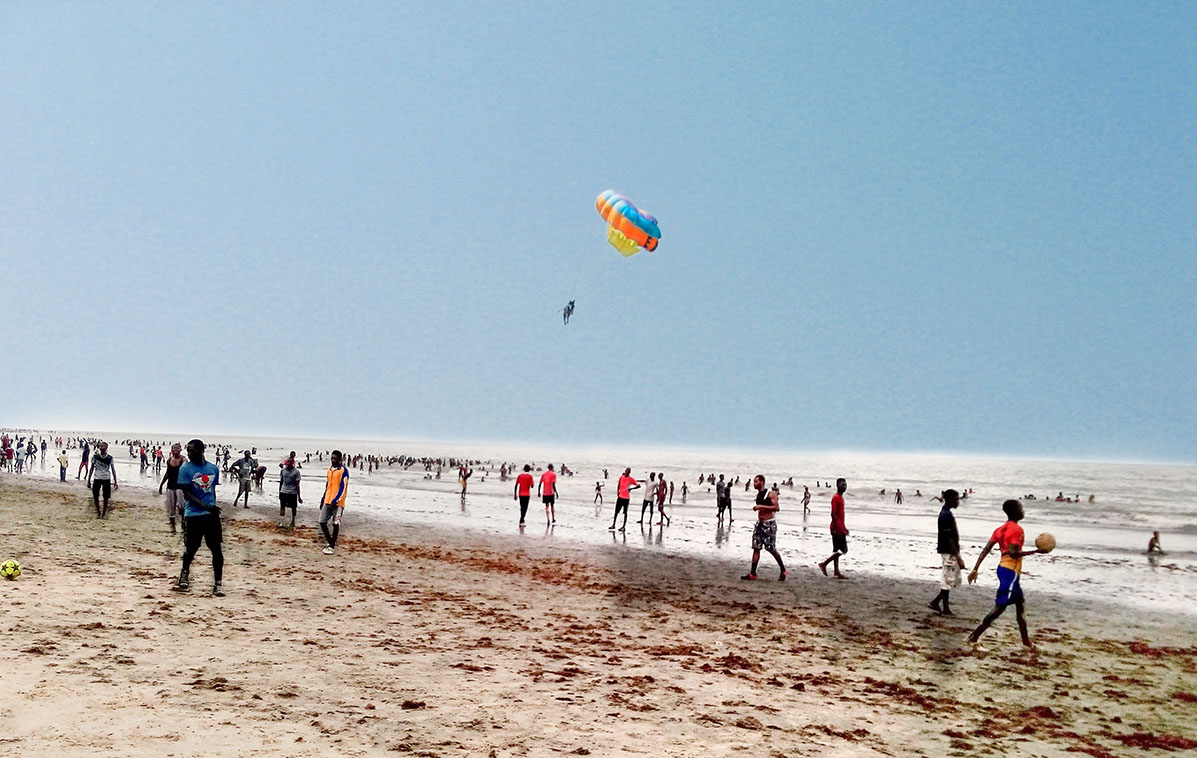
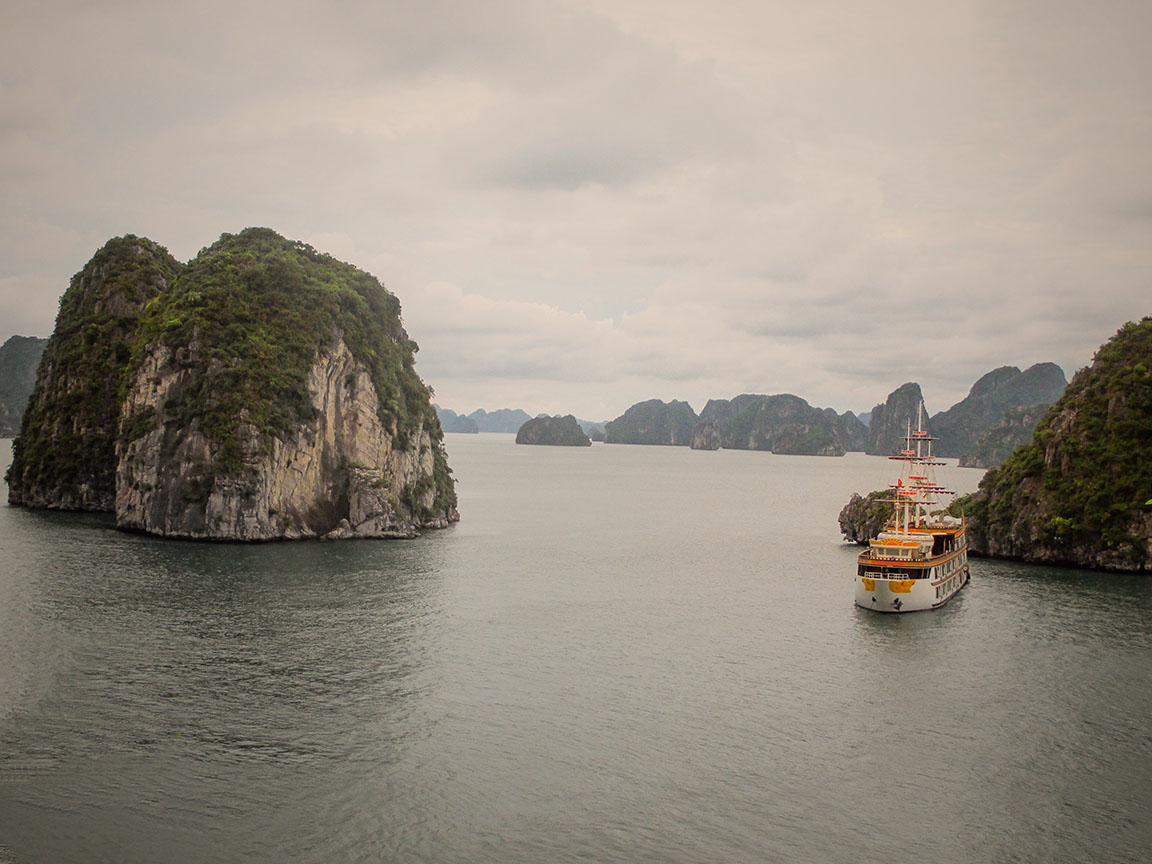
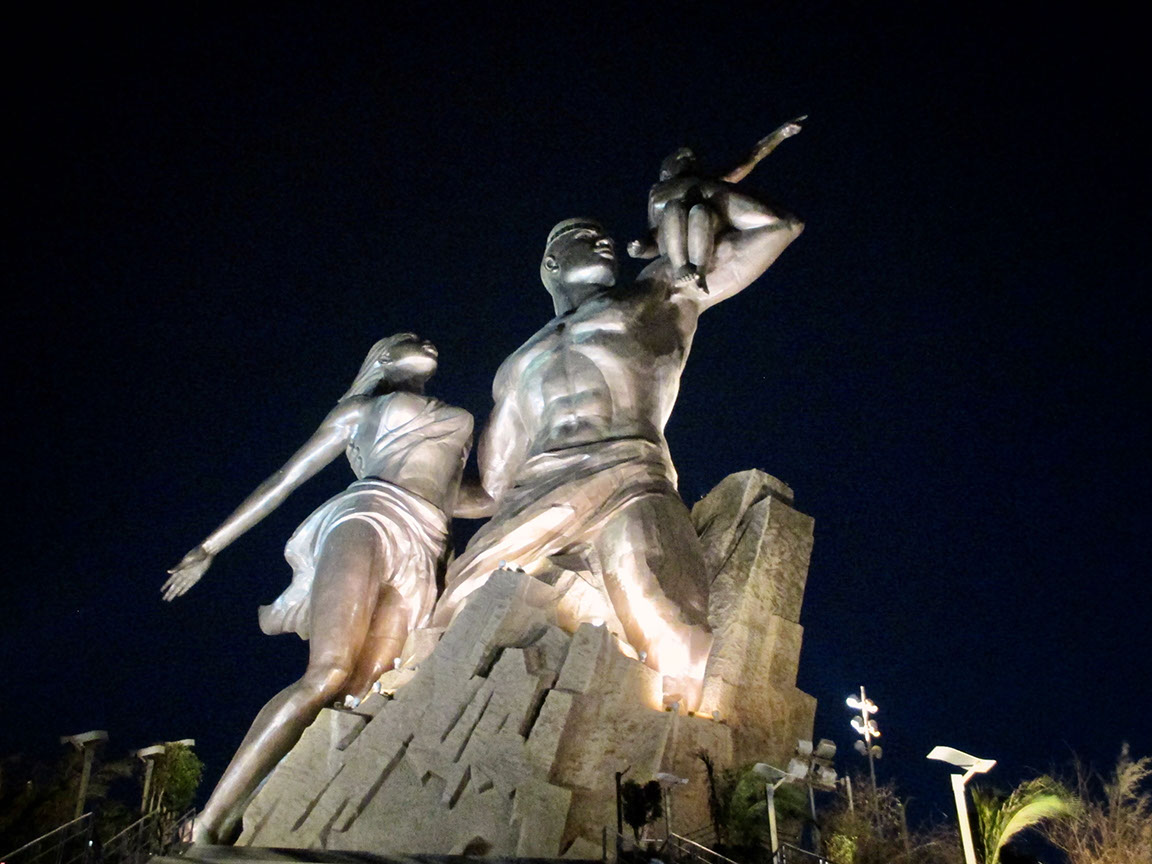
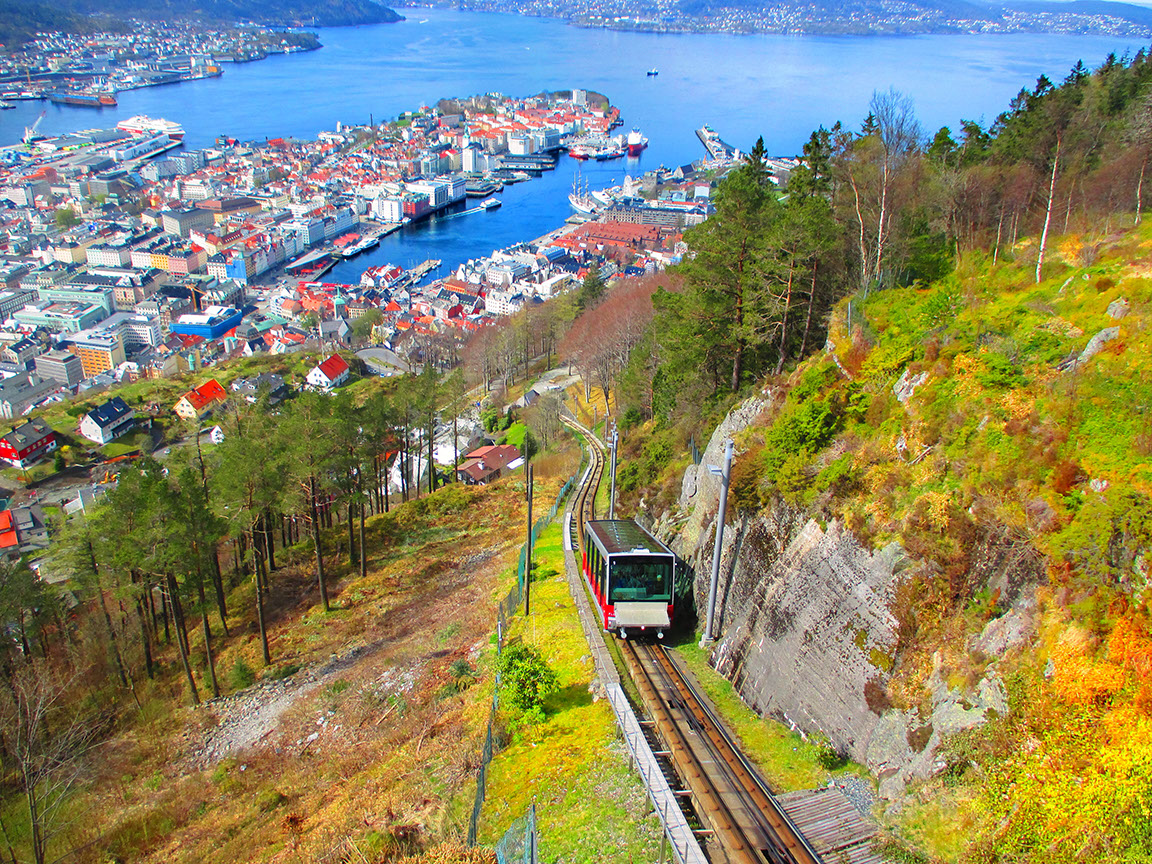

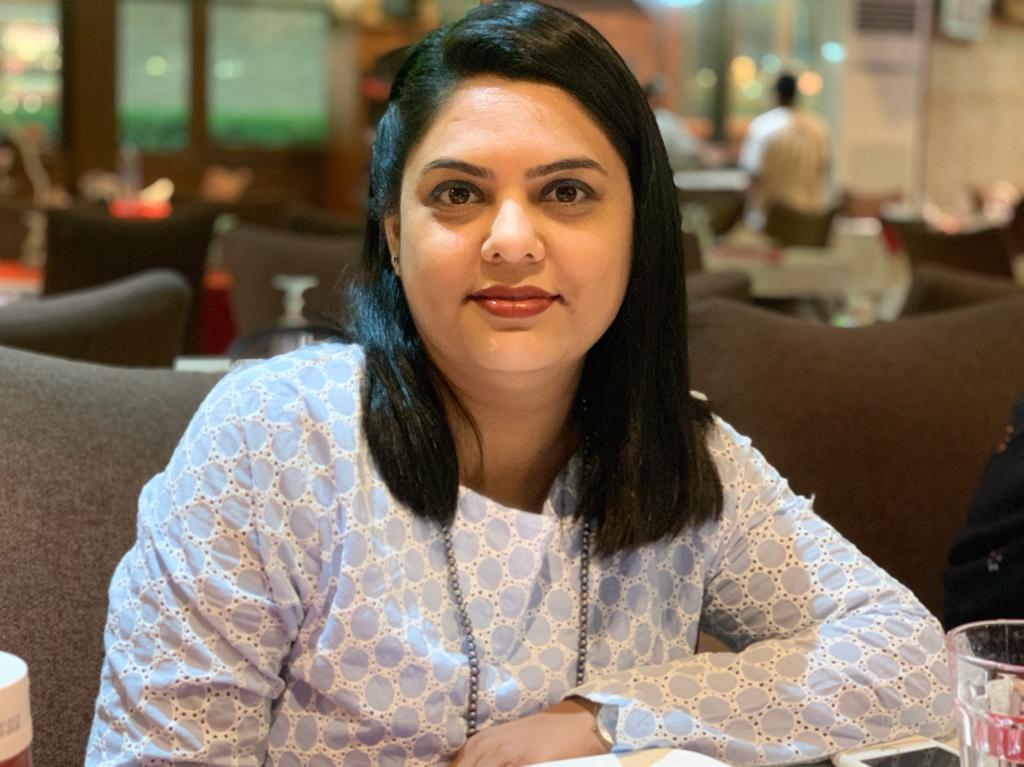


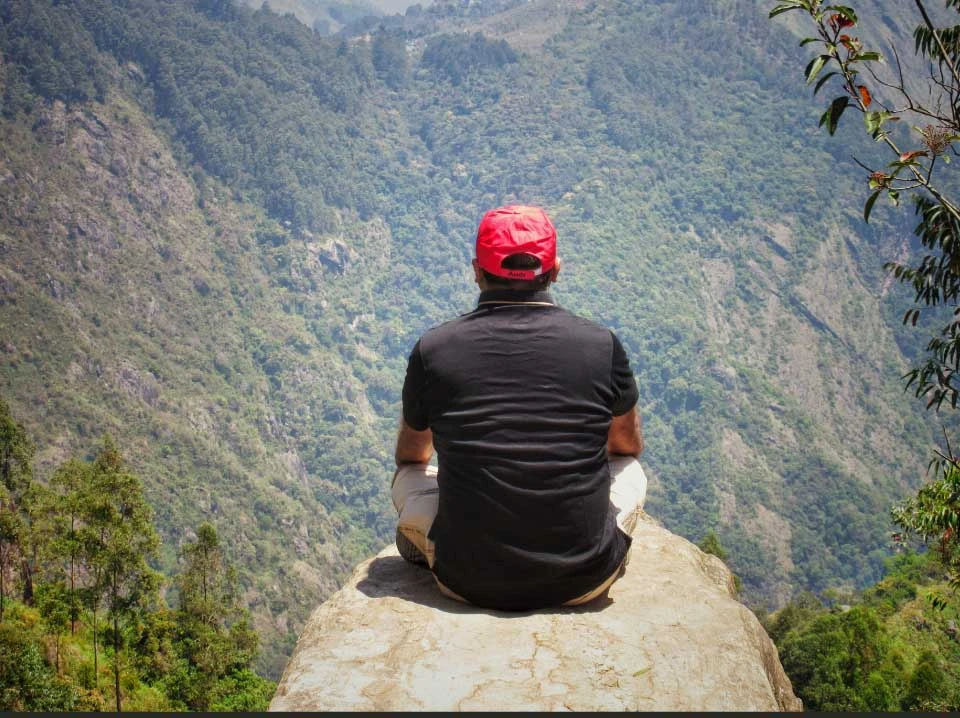
Name
Email
Comment